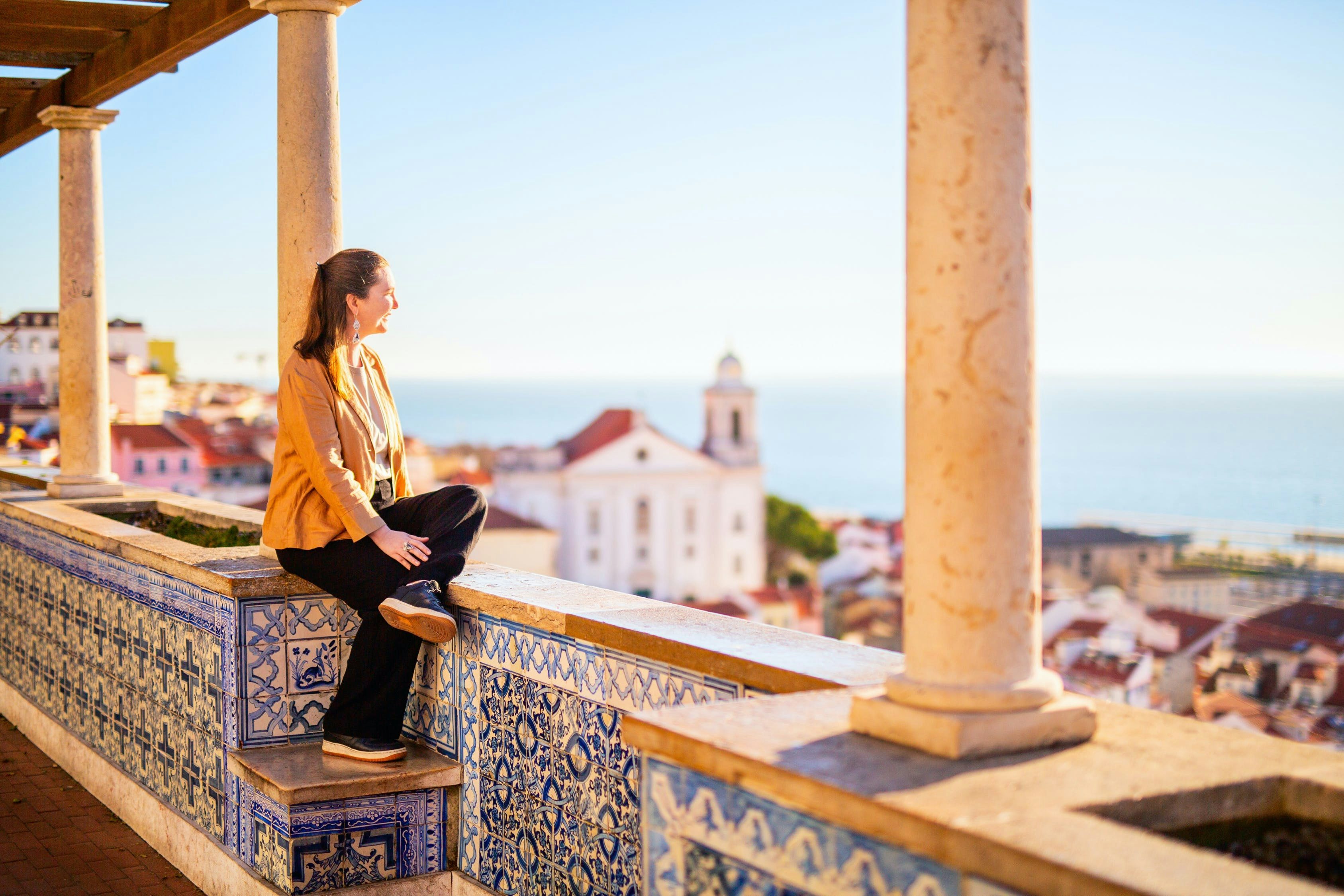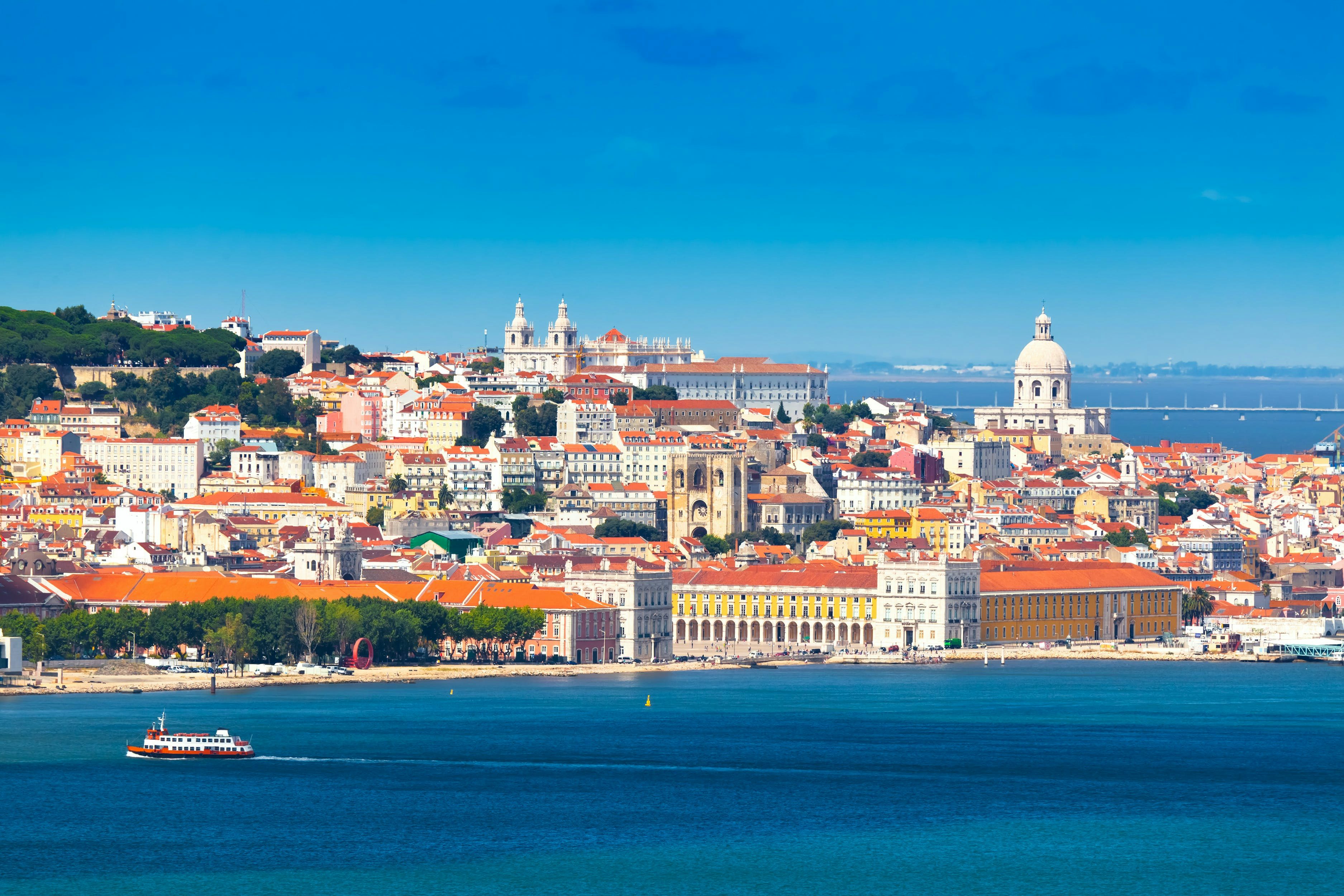

Caroline Pagel
Immigration Manager
Sep 7, 2023
Portugal Visa Types: Your Comprehensive Guide for 2023
Interest in moving to Portugal has been soaring in the past few years, and it’s not just retirees who are looking to make the jump. Many young professionals, digital nomads, entrepreneurs, and families are searching for the right Portugal visa types for their move.
But finding and applying for the right visa can be confusing, especially when there are so many types of visa available for Portugal. Choosing the correct one is essential to make the transition smooth and the process as efficient as possible.
First, it’s important to note that European Union (EU) citizens as well as citizens of Iceland, Norway, Switzerland, Liechtenstein (EFTA nations) do not need a visa to live or work in Portugal (although it is mandatory to register at the local Town Hall if staying for over 3 months).
What are the types of visa for Portugal?
There are three Portugal visa types:
- Short Stay Visa, which allows you in the country for up to 90 days
- Temporary Stay National Visa, which is valid for stays up to one year
- Long Stay National Visas or Residency Visas, that allow you to stay in the country for longer than one year

Short Stay Visa for Portugal
If you are not sure yet if you want to move to Portugal and just want to check it out first and get a feel of the country, you might want to start with a Short Stay visa (also known as a Schengen visa). This gives you up to three months to stay in the country and see where you might want to settle.
To apply for the Short Stay visa, you have to go to the Portuguese Embassy or consulate with your visa application filled out along with other required documents, including a valid passport and two passport-sized photos. It’s usually a pretty simple and quick process. When you enter Portugal, you present your visa and passport at immigration, where they may also want to see your return ticket.
Note that there are certain countries whose citizens are exempt from applying for a Schengen Visa. This means that they don’t need to apply for the Schengen Visa, and these citizens can enter the country visa-free. If you're thinking about visiting Portugal, here’s the list of countries whose citizens are exempt from the Schengen Visa.
Temporary Stay Visa for Portugal
A Temporary Stay Visa allows you to stay for up to one year in the country. Here, things get a bit more complicated compared to the Short Stay Visa. There are temporary stay visas for medical care, athletic activity, scientific research, seasonal work, professional studies and more. In other words, you have to be in the country for a specific reason and be able to prove your financial self subsistence. For more about these visas, click here.
Long-Term Stay or Residency Visa for Portugal
These are the visas that are going to allow you to live, work or study in Portugal for an extended period of time and possibly provide you a pathway to permanent residency and/or citizenship. The usual requirement is to apply for the visa at the Portuguese embassy or consulate in your country, and then convert them into Residence Permits upon arrival in Portugal with an appointment at the Foreigners and Borders Service (SEF). Below are the types of visas for Portugal for long-term stays.
Digital Nomad/Remote Work Visa
The Digital Nomad/Remote Work Visa program in Portugal was established in 2021, and it is intended for people who work remotely and want to live in Portugal. The visa allows people to stay in Portugal for up to a year and can be renewed for another year.
Applicants must be able to work remotely and have a monthly income of at least 4 times the minimum wage of Portugal, which as of 2023 is €760. Applicants must also provide proof of health insurance and a criminal background check.
One of the program's advantages is that it allows people to work and reside in Portugal without the necessity for a local employment contract. This means that digital nomads can work for clients and enterprises from all over the world while enjoying the Portuguese way of life and culture.

Job-Seeker Visa
Portugal offers a job seeker visa, which permits non-EU citizens to enter the country to search for employment opportunities. The visa is intended for highly skilled people looking for work in Portugal. Applicants must have sufficient means to support themselves throughout their stay in Portugal and have health insurance to apply for this visa. The visa is valid for 120 days after entering the country and can be extended for another 60 days.
While the job seeker visa does not guarantee employment, it’s a good option for people who want to explore the job market in Portugal or want to move to Portugal without having secured employment first..
Tech/Startup Visa
The tech/start-up visa is a type of visa designed to bring foreign entrepreneurs and tech professionals to Portugal. Applicants must have a promising business idea or a start-up initiative that fits particular criteria in order to apply for this visa. These criteria include the ability to innovate, provide value to the Portuguese economy, and create jobs in the country.
Applicants must also have sufficient financial means to support themselves and their project throughout their stay in Portugal in order to qualify for the tech/start-up visa. They must also have a business plan that they may present to Portuguese authorities.
Applicants that are granted a visa are given a one-year residence permit that permits them to begin and grow their business in Portugal. Following the one-year period, the visa holder may seek a two-year extension of their residence stay, provided their business remains operating and meets the standards established by the Portuguese authorities.
The tech visa also allows certified companies in Portugal to recruit highly-qualified professionals from non-EU/EEA countries more easily.
D1 Visa
This visa is for foreigners who already have a job waiting for them in Portugal. It is not a visa for a person to go in and seek employment. You will need to have a promise of contract and other supporting documentation to obtain this type of visa.
D2 Visa
This visa is also known as the Entrepreneur Visa and is for entrepreneurs, freelancers and independent workers who are looking to move their business, start one, or invest in a business in Portugal.
To be eligible for a residence permit in Portugal, you must provide evidence of financial stability, a solid business plan, the ability to reside in Portugal for more than 183 consecutive days per year for tax purposes, and you must also provide documentation of a place to live.
It's important to understand that the 183-day requirement only applies to tax residency; for all other forms of residence cards (excluding GV), you can leave Portugal for up to 6 consecutive months or 8 non-consecutive months throughout the card's validity. The first card is normally valid for two years, therefore you must spend at least eight months every year in Portugal (with non-consecutive absences). For a 3-year card, you must spend about 9.5 months every year in Portugal (with also non-consecutive absences).
While it is not necessary to be a fiscal resident in Portugal to acquire a residence permit, you must meet all other requirements.
This visa and corresponding residence permit is becoming quite popular as it does not require a significant investment in capital or property, like the so-called Golden Visa. The Golden Visa, on the other-hand, does not require a person to live in Portugal while working towards citizenship. They only need to be there for 7 days in a given year.
Dave Leiderman's experience exemplifies how moviinn can assist individuals in navigating the process of relocating to Portugal and acquiring a D2 Visa. Dave was able to secure his D2 Visa and relocate to Portugal to establish his business thanks to moviinn's support. To learn more about this story, you can click here.
D3 Visa
The D3 Visa is a temporary residency visa that allows people to live and work in Portugal. It is designed specifically for "highly qualified" professionals, as defined by the Portuguese government. Recent modifications to the Foreigners Law have increased the validity term of the D3 Visa to two years from the date of issue, with the option of renewing for three-year increments.
The profession must be a high value-added activity, and it is necessary to prove that the job opportunity extends for at least one year. There are also salary requirements that state the job must pay 1.5 times more than the national average gross annual salary or 3 times the Social Index for Support (IAS). As of 2023, that translates to a minimum of €1.443,00 euros or $1,559.88 dollars. It’s helpful to think of the D3 visa and corresponding residence permit as a type of work permit.
Oksana's story details her experiences as a business owner and expat in Portugal. Oksana, who is originally from Ukraine, chose to go to Portugal and start her own tourism business. She encountered some difficulties along the way, such as navigating the visa application procedure and finding adequate lodgings, but she eventually achieved success in her undertakings. Oksana was able to get her D3 visa and get a fantastic apartment for her business thanks to moviinn.
D4 Visa
Also known as the “Study Visa”, the D4 is for those that wish to pursue higher education in Portugal, meaning that undergraduate (bachelors), masters, and doctoral students qualify for this visa. It is also available for exchange students, professional internships, and post-doctoral research work.
The requirements are acceptance letter from the university or relevant institution, proof of financial means, proof of accommodation, and a clean criminal record.
The visa allows students to move to another type of residence permit (such as a D2 or D3 visa) if they desire to stay in Portugal after graduation. If they are looking for work as a highly qualified worker, they can stay for a year and then renew their permit. It is vital to note that the work they find must be commensurate with their skills, and does not have to match the D3 visa requirements such as minimum wage or length of employment contract.

D5 Visa
The D5 is a visa specifically for exchange students from the EU who want to study for a period of time in Portugal.
D6 Visa
The D6 visa is a type of visa that enables the family members of Portuguese residents to apply to reside in Portugal. It belongs to the category of Family Reunification visas and is suitable for spouses, dependent children, and dependent parents.
D7 Visa
The D7 Visa, also known as the Retirement or Passive Income Visa, was introduced in 2008 to encourage retirees and individuals with passive income to move to Portugal. In this case, you will need a document proving income from pensions, real estate, intellectual property, or financial investments.
In other words, to qualify for the D7 visa, an applicant must prove that they have at least the Portuguese minimum salary as their source of income. However, it is always advisable to have a bit more than the required amount in order to avoid any problems with conversion rates or any changes in the minimum salary in Portugal. The Consulate's judgment is not influenced by possessing only the minimum amount. The consulate can only lawfully deny the visa if the applicant does not meet the minimum required income or any of the other standards. If an applicant is accompanied by a spouse or a dependent adult, the required income is 50% of the primary applicant's income, with a 30% increase for each kid.
The D7 visa also allows family members to join the main applicant and provides a path towards eventual citizenship. Once you obtain the D7 visa, you can apply for a corresponding residence permit, which provides access to various benefits, including the free healthcare system, visa-free travel in certain EU countries, and the right to live, study, and work in Portugal.
According to the law, the holder of a residence permit can not be absent for more than 6 or 8 consecutive or non-consecutive months within the permit's current valid period of 2 or 3 years. It is essential to remember that this is not per year, but for the duration of the permit's validity. If the absences are not consecutive, a person with a 2-year permission may be absent for up to 4 months per year, while a person with a 3-year permit may be gone for up to 2.5 months per year. Longer absences, on the other hand, may be authorized if well warranted. Exceeding the tolerated absence limit without a good explanation may result in the residence permit being revoked.
The Golden Visa
Also known as the "Citizenship by Investment" visa, this type of visa does not require you to spend much time in Portugal, only an average of 7 days per year. However, in exchange for this privilege, you are required to make a substantial investment in Portugal. Prior to July 2023, this investment could take different forms, such as purchasing or renovating specific real estate, investing in Portuguese funds, or making other investments that amount to at least 280,000 euros. However, as of July 19 2023, the government made changes to the Golden Visa requirements, which are to be implemented from August or September 2023.
The new rules of the Golden Visa state that it’s no longer a possibility to invest in real estate in order to obtain the visa, due to the real estate/rental crisis in Portugal. The only acceptable investment now is Fund Investment of 500, 000 euros.
The Golden Visa provides a streamlined pathway towards obtaining Portuguese citizenship and all the benefits that come with it. If you would like more information about the Golden Visa, please click here.

Final thoughts on types of visas for Portugal.
There are several visa options available for individuals who wish to move to Portugal. Each choice has its own set of criteria and advantages, so it's critical to carefully assess which visa is the best fit for your specific situation.
At moviinn, we can assist you at every step of your relocation journey, from selecting the best visa for your specific needs, to navigating the maze of requirements to move to Portugal. We can help you choose the best schools for your children, get your tax identification number, set up a mailbox address, and much more.
If you are thinking about moving to Portugal, book a call with one of our experienced migration advisors or research more about the different types of visas in our Visa & Immigration Info Page. We will be delighted to answer any questions you may have and provide you with all the information you need to guarantee a smooth and successful relocation.


